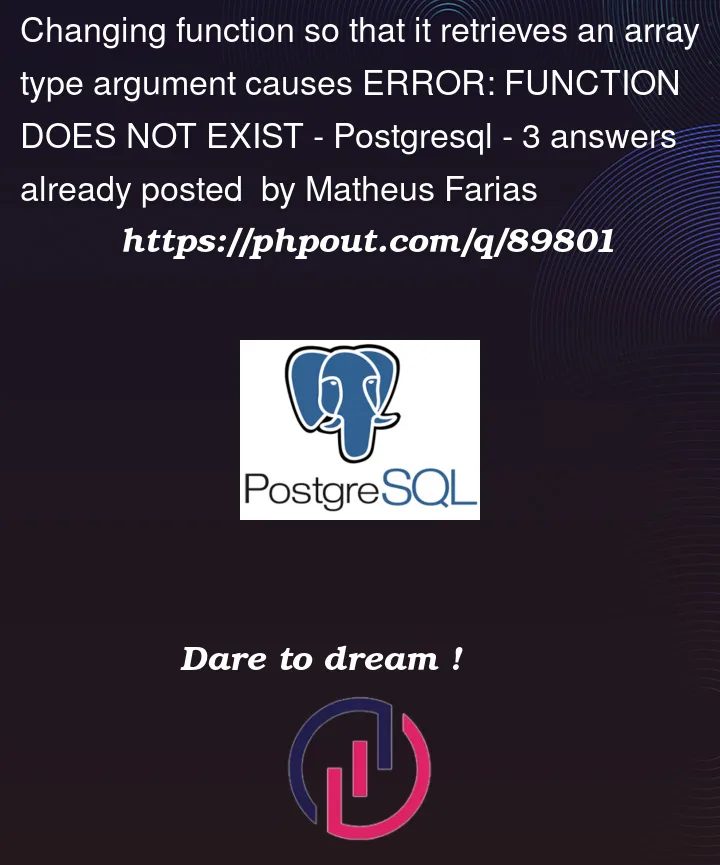I changed a function so that it receives three arguments instead of only two. In the age--1.2.0.sql file, it was set before as:
CREATE FUNCTION ag_catalog.create_vlabel(graph_name name, label_name name)
RETURNS void
LANGUAGE c
AS 'MODULE_PATHNAME';
And then I changed to:
CREATE FUNCTION ag_catalog.create_vlabel(graph_name name, label_name name, parent_list name[])
RETURNS void
LANGUAGE c
AS 'MODULE_PATHNAME';
After this, I modified the same function in label_commands.c file so that it checks if the third argument is null. If it is not, it iterates through the list, adds the parent labels to a List *parent, and then creates the label inheriting from the parent labels. Here is the block of code where I add this functionality:
// [...]
// Added these variables:
ArrayType *list_parents;
Datum *elements_parent_names;
Name parent_name;
char *parent_name_str;
int num_parents;
// [...]
//Create the default label tables
graph = graph_name->data;
label = label_name->data;
rv = get_label_range_var(graph, graph_oid, AG_DEFAULT_LABEL_VERTEX);
parent = list_make1(rv);
// checking if user has provided the parent's name list.
if (!PG_ARGISNULL(2)) {
// Get the content from the third argument - which is an array.
list_parents = PG_GETARG_ARRAYTYPE_P(2);
num_parents = ArrayGetNItems(ARR_NDIM(list_parents), ARR_DIMS(list_parents));
elements_parent_names = (Datum *) ARR_DATA_PTR(list_parents);
// Check for each parent in the list.
for (int i = 0; i < num_parents; i++) {
parent_name = DatumGetName(elements_parent_names[i]);
parent_name_str = NameStr(*parent_name);
// Check if parent label does not exist
if (!label_exists(parent_name_str, graph_oid)) {
ereport(ERROR,
(errcode(ERRCODE_UNDEFINED_SCHEMA),
errmsg("parent label "%s" does not exist.", parent_name_str)));
}
rv = get_label_range_var(graph, graph_oid, parent_name->data);
lappend(parent, rv);
}
}
create_label(graph, label, LABEL_TYPE_VERTEX, parent);
You guys can view the original code here.
After this, I tried calling the function like this:
--(this works)
SELECT * FROM ag_catalog.create_vlabel('demo', 'Book');
NOTICE: VLabel "Book" has been created
create_vlabel
---------------
(1 row)
But then if I call like this:
--(I get an error)
SELECT * FROM ag_catalog.create_vlabel('demo', 'Fantasy', ARRAY['Book']);
ERROR: function ag_catalog.create_vlabel(unknown, unknown, text[]) does not exist
LINE 1: SELECT * FROM ag_catalog.create_vlabel('demo', 'Fantasy', ARRAY...
^
HINT: No function matches the given name and argument types. You might need to add explicit type casts.
How can I fix this so that it successfully gets all the elements from the passed array?




3
Answers
Try dropping the extension, and then re-creating it.
You should run the make command in age folder again:
Then drop the extension, and re-create it as told by Rafsun.
Then you should add the following code:
It’s a good thing to drop the extension as mentioned by Rafsun. If even that doesn’t work, I see that you’ve used
ArrayTypeforlist_parents. I’ve observed wheneverArrayTypewas used in source code,deconstruct_array()has been used. Maybe that’s the reason it’s unable to access the memory ofparent_nameandparent_name_str. We might have to process the array into something and then use those.Refer this image for details on how to use
deconstruct_array